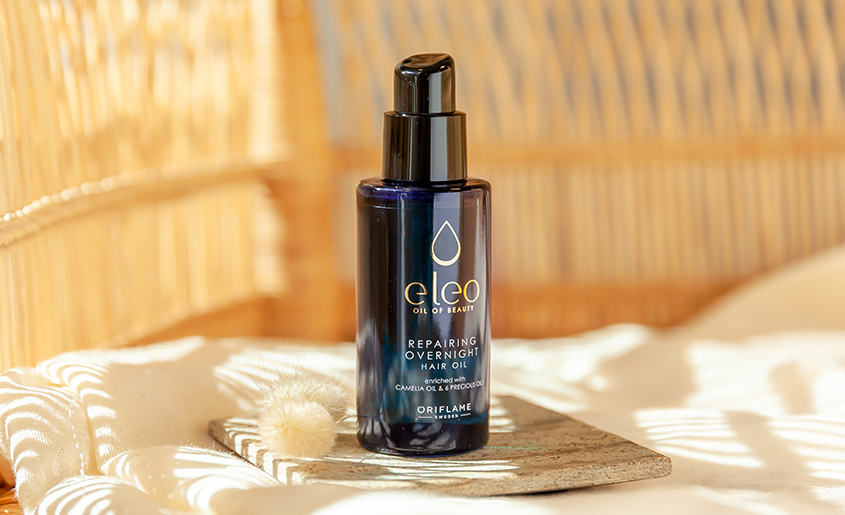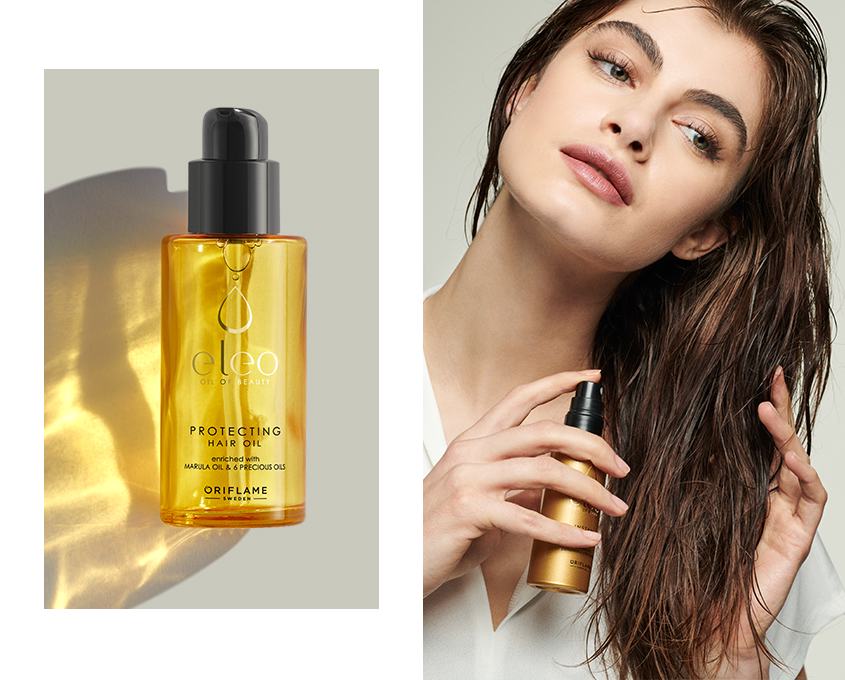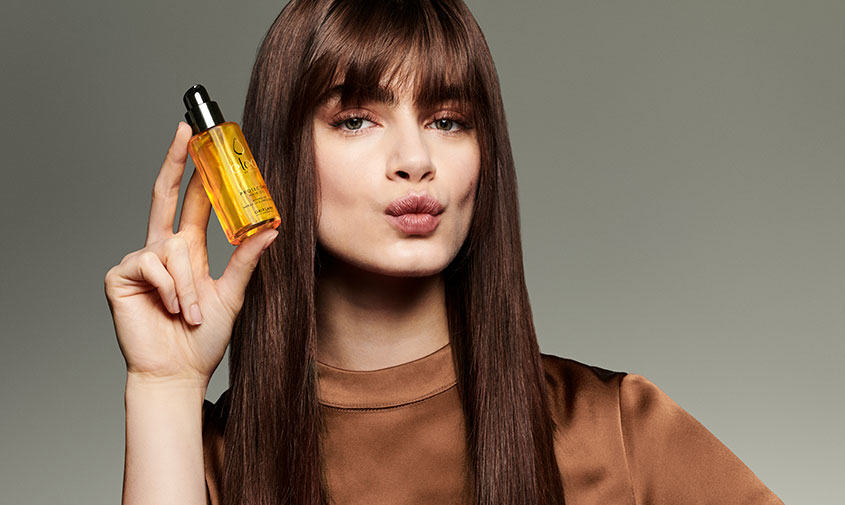HAIR HEALTH AND GROWTH
Hair oils offer a multitude of benefits, from preventing damage to improving flexibility and strength – which can ultimately lead to hair growth. Win win!
They do this by protecting the hair from external aggressors like harsh brushing or towel drying hair, both of which can actually damage hair follicles. But there are both heavier and lighter oils to choose from, and they do different things to your hair:
“Heavier oils are going to deposit on the outside of the hair, coating the hair fibre, which will be the first line of defense against external aggressors,” says our Cosmetic Technologies Scientist Prunelle Garret. Aggressors can include pretty simple
“Other, lighter oils can penetrate deeper into the hair fibre to improve flexibility and strengthen the hair from the inside out,” says Garret, which protects more against environmental aggressors like pollutants.
Of course, the reason many of us know and love hair oils goes beyond protection and hair growth; they're known to improve shine, so you can get that salon worthy finish at home. And they’ve even been shown to maintain the style integrity of curled hair for longer.

H2: WHICH HAIR OIL WORKS FOR YOU?
There is a natural oil for all of your hair care concerns, but we have a few favorites. If your hair feels dry to the touch or damaged and you really want to improve texture, then you should opt for a heavier oil that will act on the surface such as Eleo Repairing Overnight Hair Oil, for example. If your hair is deeply damaged and you want to act upon it without changing the texture, then you should go towards lighter hair oils such as Love Nature Hair Oil Coconut Oil.
Ultimately it depends on what result you’re looking for and on your hair type. For example, Coconut Oil is well known for its anti-microbial benefits in addition to reducing flake visibility and therefore can be recommended for people with dandruff, although it will only have a mild effect. Specific products such as Love Nature Shampoo For Dandruff Control Tea Tree Oil & Burdock would have a greater effect at tackling dandruff.
Eleo Protecting Hair Oil can be used to protect hair before styling and contribute to colour protection while Eleo Oil Instant Nourishing Hair Oil delivers hydration and nourishment and provides shine and gloss.
H2: BENEFITS THAT GO BEYOND CONDITIONER
Do you need hair oils when you’re already using conditioner? Turns out they do different things: hair oils are considered more of a treatment to an existing hair issue while conditioner application is more general.

HOW TO USE
Hair oils can be used at different moments of your hair care routine:
• As an overnight treatment/pre-shampoo: here you will apply more oil to your hair as to saturate it and really let it soak in to bring deep care. When you wash your hair the following day, the shampoo will remove the excess of oil, but a residue will remain to keep the conditioning benefit. Therefore, if you decide to include hair oil in your routine as an overnight treatment, you can skip the conditioner after your shampoo. This should not be done too often as to not grease the scalp and oversaturate the hair. Once a week is recommended.
• As a hair serum: you can apply on specific areas for targeted needs. This can be done as much as needed. Apply a few drops in your hands and rub them together as to have a thin coating before applying on the hair.



